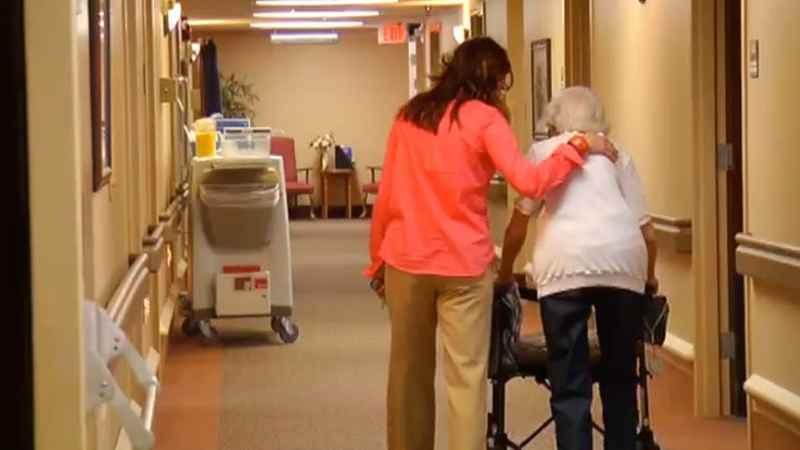Judge pauses nationwide vax mandate for health care workers; some nursing homes worry about staffing shortages
A federal judge has temporarily blocked the COVID-19 vaccine mandate for health care workers nationwide, giving some industries more time to prepare for a possible wave of resignations.
A lawsuit brought by 10 states resulted in a federal judge pausing the requirement for everyone.
Officials said the care industry has been battling staffing shortages since before the pandemic and a federal mandate could cause more employees to call it quits.
Tracy Murphy, Mount Olivet Rolling Acres president, explained she and her staff are being stretched thin in the thick of the pandemic.
“It’s been really tough, to be frank,” Murphy said. “We are so short-staffed. We have supervisors, directors and myself filling in on shifts in our homes.”

[KSTP]
Mount Olivet Rolling Acres is a care facility serving about 3,000 kids, adults and seniors, but the caregivers are dwindling.
Murphy said a quarter of shifts are open during the week and half of them are open on weekends.
“I truly sit up at night and worry about errors — medication errors, allergy errors — and I’m worried our staff will get hurt or overworked,” she said.
She explained the federal COVID-19 vaccine requirement for healthcare workers is putting pressure on the situation.
A federal judge put a nationwide pause on the mandate that required health care workers to get their first dose no later than Dec. 4.
“There is a portion of our staff that are not interested or feeling safe with the vaccine,” Murphy said.
Care provider officials explain the industry can’t afford to lose a single employee.
“We have a significant, actually a catastrophic crisis when it comes to the number of workers that we have,” said Patti Cullen, president of Care Providers of Minnesota.
She said National Guard filling in at care facilities in crisis is a short-term fix, but a long-term fix entails better pay and benefits to keep people around.
In the meantime, Murphy said she’s putting backup plans in place to prepare for the worst.
“We are looking at closing temporarily closing homes, consolidating people to live together so that they can get better care and better staffing,” Murphy said.